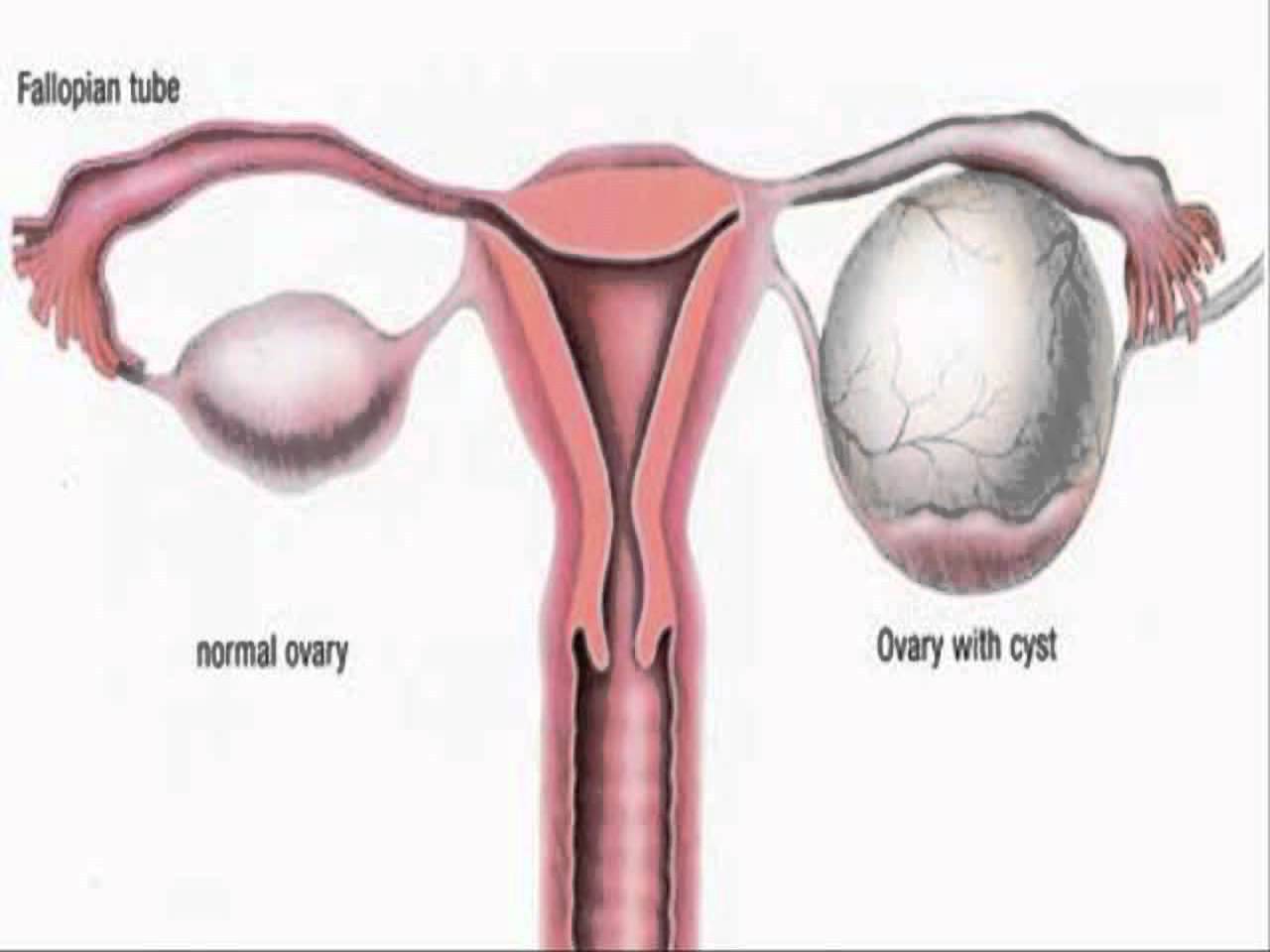Ovarian Cyst Causes, Symptoms, Diagnosis and Treatment

What is Ovarian Cyst?
An ovarian cyst is any fluid-filled sac within the ovary.
Most ovarian cysts are related to ovulation being either follicular cysts or corpus luteum cysts.
Other types include cysts due to endometriosis, dermoid cysts, and cystadenomas. Many small cysts occur in both ovaries in polycystic ovarian syndrome.
Often cysts are simply observed over time. If they cause pain, medications such as paracetamol (acetaminophen) or ibuprofen may be used.
Causes of Ovarian Cyst:
Generally, most of the ovarian cyst form due to the normal function of a woman’s menstrual cycle.
Other type of cysts, although present, is uncommon.
- Functional cyst
- Follicular cyst
- Corpus luteum cyst
- Other cysts
- Dermoid cysts
- Cystadenomas
- Endometriomas
Symptoms of Ovarian Cyst:
The following symptoms are exhibited:
- Abdominal pain. Dull aching pain within the abdomen or pelvis, especially during intercourse.
- Uterine bleeding. Pain during or shortly after beginning or end of menstrual period; irregular periods, or abnormal uterine bleeding or spotting.
- Fullness, heaviness, pressure, swelling, or bloating in the abdomen.
- When a cyst ruptures from the ovary, there may be sudden and sharp pain in the lower abdomen on one side.
- Change in frequency or ease of urination (such as inability to fully empty the bladder), or difficulty with bowel movements due to pressure on adjacent pelvic anatomy.
- Constitutional symptoms such as fatigue, headaches
- Nausea or vomiting
- Weight gain
- Other symptoms may depend on the cause of the cysts:
- Symptoms that may occur if the cause of the cysts is polycystic ovarian syndrome (PCOS) may include increased facial hair or body hair, acne, obesity and infertility.
- If the cause is endometriosis, then periods may be heavy, and intercourse painful.
Diagnosis of Ovarian Cyst:
The following tests and exams help in diagnosing ovarian cyst:
- Pregnancy test
A positive pregnancy test may suggest that your cyst is a corpus luteum cyst.
- Pelvic ultrasound
- Laparoscopy
- CA 125 blood test.
Blood levels of a protein called cancer antigen 125 (CA 125) often are elevated in women with ovarian cancer and cysts.
Treatment of Ovarian Cyst:
The following treatment options are available:
- Wait for the cyst to disappear on its own
- Intake of birth control pills in order to reduce the chances of new cysts forming
- Surgery in order to remove the present cyst completely
Pain associated with ovarian cysts may be treated by the following ways:
- Pain relievers such as:
- Acetaminophen,
- Nonsteroidal anti-inflammatory drugs
- Opioids
By : Natural Health News




